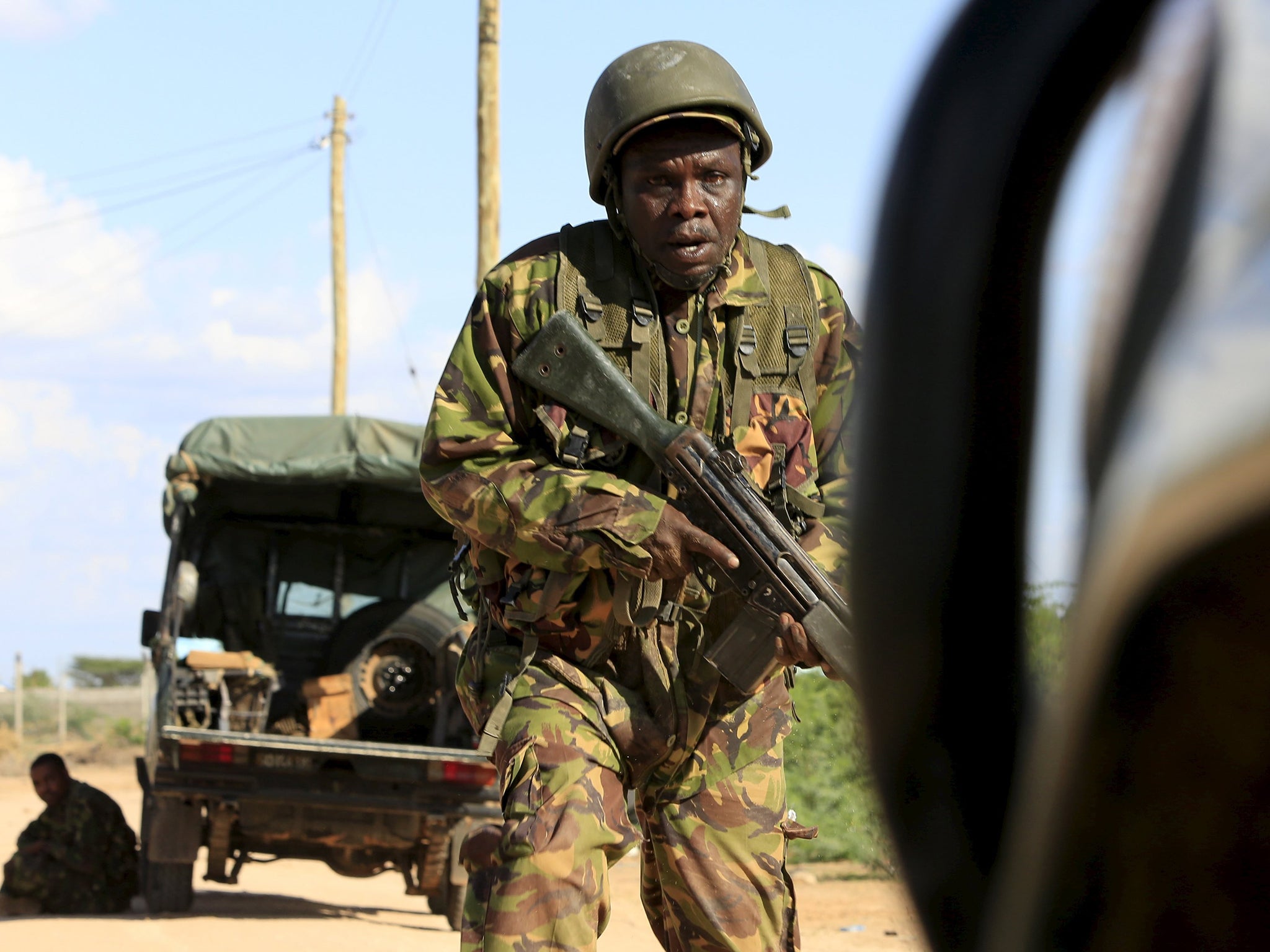Kenya Garissa University attack: The US is waging a little-publicised war on the al-Shabaab terror group
Analysts have questioned the effectiveness of a tactic aimed more at keeping the terrorist threat at bay than at tackling the appeal of the militants

When Adnan Garaar, who allegedly masterminded al-Shabaab’s attack on the Westgate shopping mall in Nairobi in September 2013, died in a US drone strike, he became the latest casualty of a little-publicised war on the Somalia-based terror group.
Garaar was riding in a car with two other militants from the Islamist group in southern Somalia last month when the drone hit their vehicle with a missile. US officials said he was a key player in the al-Shabaab unit responsible for external operations of which the Westgate attack, which killed 67 civilians, was one.
The strike was hailed, by the Pentagon, as “a significant blow” to al-Shabaab in Somalia, highlighting a controversial policy of airborne warfare that has seen the Americans pick off some of the terror group’s most senior figures in recent years.
Since its first drone strike in 2011, the US has launched at least nine strikes on the al-Qaeda-affiliated militant group, the most high-profile target being its leader, Ahmed Abdi Godane, last September. The London-based Bureau for Investigative Journalism estimates that drones have killed between 23 and 105 people in Somalia.
It is a policy that has drawn criticism, in part because it deepens hostility to the West in places where drones have meted out civilian casualties, but also because of the perceived disconnect between those operating the drones and their victims.
Americans were burnt by the so-called Black Hawk Down incident in Somalia in 1993, when a US raiding party went wrong and the bodies of American soldiers were paraded through the streets of Mogadishu.
While drone strikes allow the US to conduct a war at minimal risk to its troops, analysts question the effectiveness of a tactic that appears aimed more at keeping a terrorist threat at bay than at tackling the appeal of a militant group that is increasingly looking to recruit marginalised Muslims in neighbouring Kenya to its cause, reflected by the growing number of deadly attacks on Kenyan soil.
“It looks like [the US is] just keeping up the pressure on the group,” Paul Gabriel, an analyst at the London-based Control Risks, said. “How effective can drone strikes be unless you start addressing economic and political grievances, and human rights violations?”

The drone strikes remain just one aspect of a multi-faceted approach. African Union troops in Somalia have pushed the militant group out of towns and ports that it previously controlled, although the group still controls much of southern Somalia, while intelligence sharing between the Kenyans and Western agencies is thought to have alerted Kenya recently to a planned attack on its parliament.
Al-Shabaab may be embattled, but it is far from beaten. It has largely managed to replace the senior figures who were taken out, and an anticipated fragmentation of the group following Godane’s death has not really materialised, analysts say. Drone strikes are now so much a part of the landscape that some believe it gives the group an elevated sense of importance in a region where its impact is considerably less than its more radical peers, such as Isis in Iraq and Syria, and Boko Haram in Nigeria.
While the group had not, until today, managed to replicate an attack along the lines of Westgate, it remains a “very, very diverse threat”, Cedric Barnes, of International Crisis Group, said.

Join our commenting forum
Join thought-provoking conversations, follow other Independent readers and see their replies